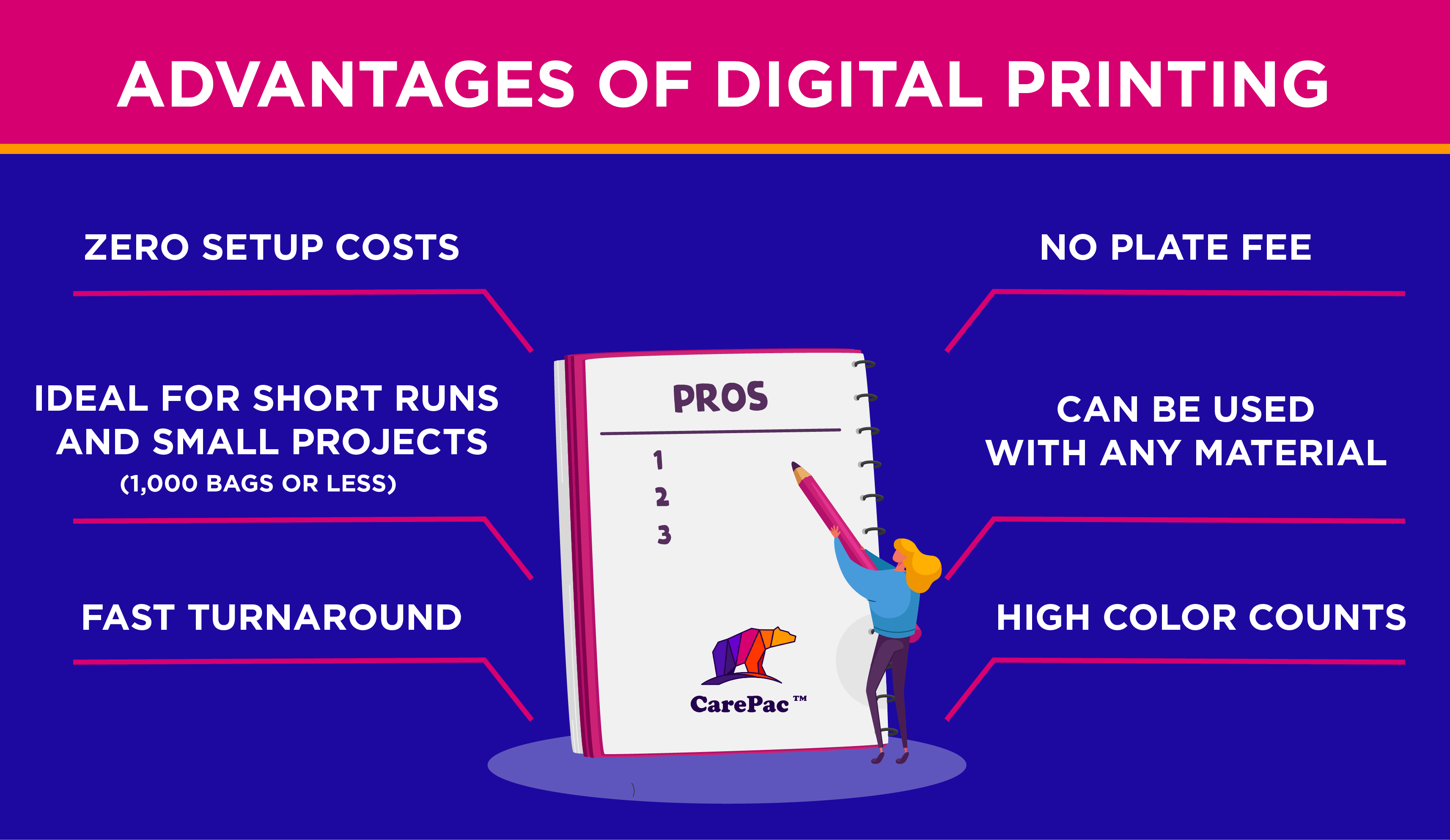The Single Strategy To Use For Digital Printing
Wiki Article
The Facts About Digital Printing Uncovered
Table of ContentsThe Buzz on Digital Printing7 Simple Techniques For Digital PrintingRumored Buzz on Digital PrintingNot known Facts About Digital PrintingAll about Digital PrintingThe smart Trick of Digital Printing That Nobody is Talking About
Variable data printing, such as direct mail with personalized codes and addresses, is preferably fit for digital printing. Digital quick printing only requires four actions of design, review, printing and binding to obtain whatever done. Digital fast printing has an unequaled advantage: print on need.According to PMMI, digital printing allows brands and manufacturers to react rapidly to consumer needs while improving the supply chain, decreasing warehousing price and waste, and taking pleasure in faster time to market. That all audios terrific, however exactly how does this innovation do all that? The significant differentiator of these modern technologies is that there are no set up costs and no plates with electronic printing.
Digital Printing Things To Know Before You Buy
This results in quicker turn-around time and decreases expense when utilizing digital printing.Fast production suggests getting your product to market quicker. It additionally means it's easier and faster to make changes later, when you alter a dish, add a SKU, or produce seasonal packaging. Digital printing is extremely versatile, so it's simple to make adjustments to the package design promptly. Everything returns to home plates.
Much more supply can mean even more waste later on. With traditional printing approaches, short-run printing is just not possible. Due to the fact that a great design can make or damage your product, electronic printing continually develops high-quality, clear and vivid graphics each time. Digital printing on adaptable pouches includes the intense, dynamic, and precise graphics that almost beckon customers to connect and touch them.
Digital printing is the procedure of printing digital-based photos straight onto a range of media substrates. There is no demand for a printing plate, unlike with countered printing. Digital data such as PDFs or desktop computer posting files can be sent out straight to the electronic printing press to print on paper, picture paper, canvas, textile, synthetics, cardstock and various other substratums.
The Best Strategy To Use For Digital Printing
According to PMMI, digital printing enables brand names and suppliers to react quickly to client demands while boosting the supply chain, reducing warehousing expense and waste, and delighting in faster time to market. That all audios fantastic, but exactly how does this technology do all that? The significant differentiator of these modern technologies is that there are no set-up charges and no plates with digital printing.According to Wikipedia, the best difference in between electronic printing and conventional methods such as lithography, flexography, gravure, or letterpress is that there is no need to change printing plates in electronic printing, directory whereas in these analog printing approaches home plates are repeatedly changed. This causes quicker turnaround time and decreases price when utilizing electronic printing.

The 30-Second Trick For Digital Printing
With conventional printing methods, short-run printing is just not feasible. Due to the fact that a terrific style can make or break your product, digital printing constantly produces top quality, clear and vivid graphics each time.
According to PMMI, digital printing enables brands and producers to respond rapidly to client demands while boosting the supply chain, decreasing warehousing price and waste, and appreciating faster time to market. That all audios excellent, but just how does this technology do all that? moved here The significant differentiator of these technologies is that there are no set-up costs and no plates with digital printing.
Not known Facts About Digital Printing
This results in quicker turn-around time and reduces price when using digital printing.Quick production means obtaining your product to market faster. It also implies it's much easier and faster to make modifications later on, when you change a recipe, add a SKU, or produce seasonal product packaging. Digital printing is highly flexible, so it's simple to make changes to the bundle design swiftly. It all goes back to home plates.

Some Ideas on Digital Printing You Need To Know
Digital printing is the process of printing digital-based pictures straight onto a variety of media substratums. There wikipedia reference is no demand for a printing plate, unlike with balanced out printing. Digital files such as PDFs or desktop computer publishing documents can be sent straight to the digital printing press to print on paper, photo paper, canvas, fabric, synthetics, cardstock and various other substratums.Report this wiki page